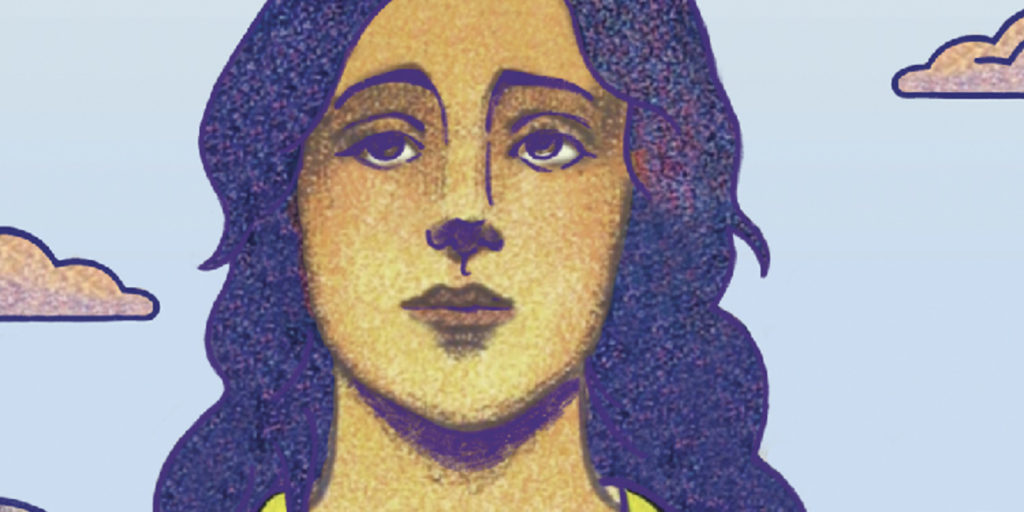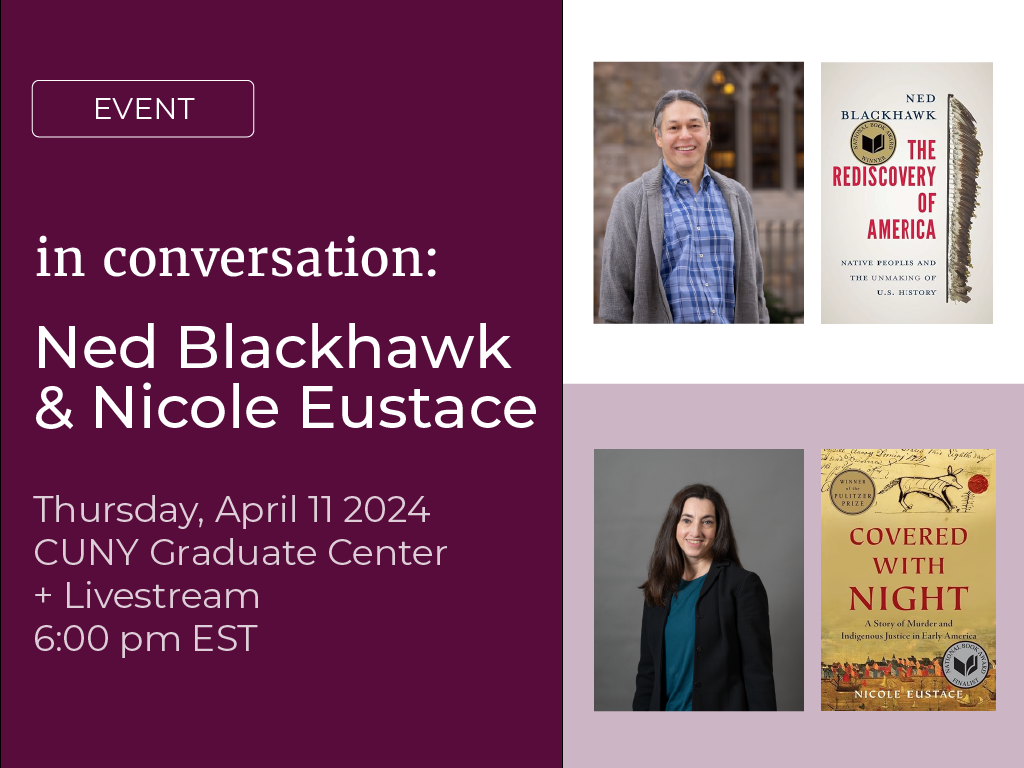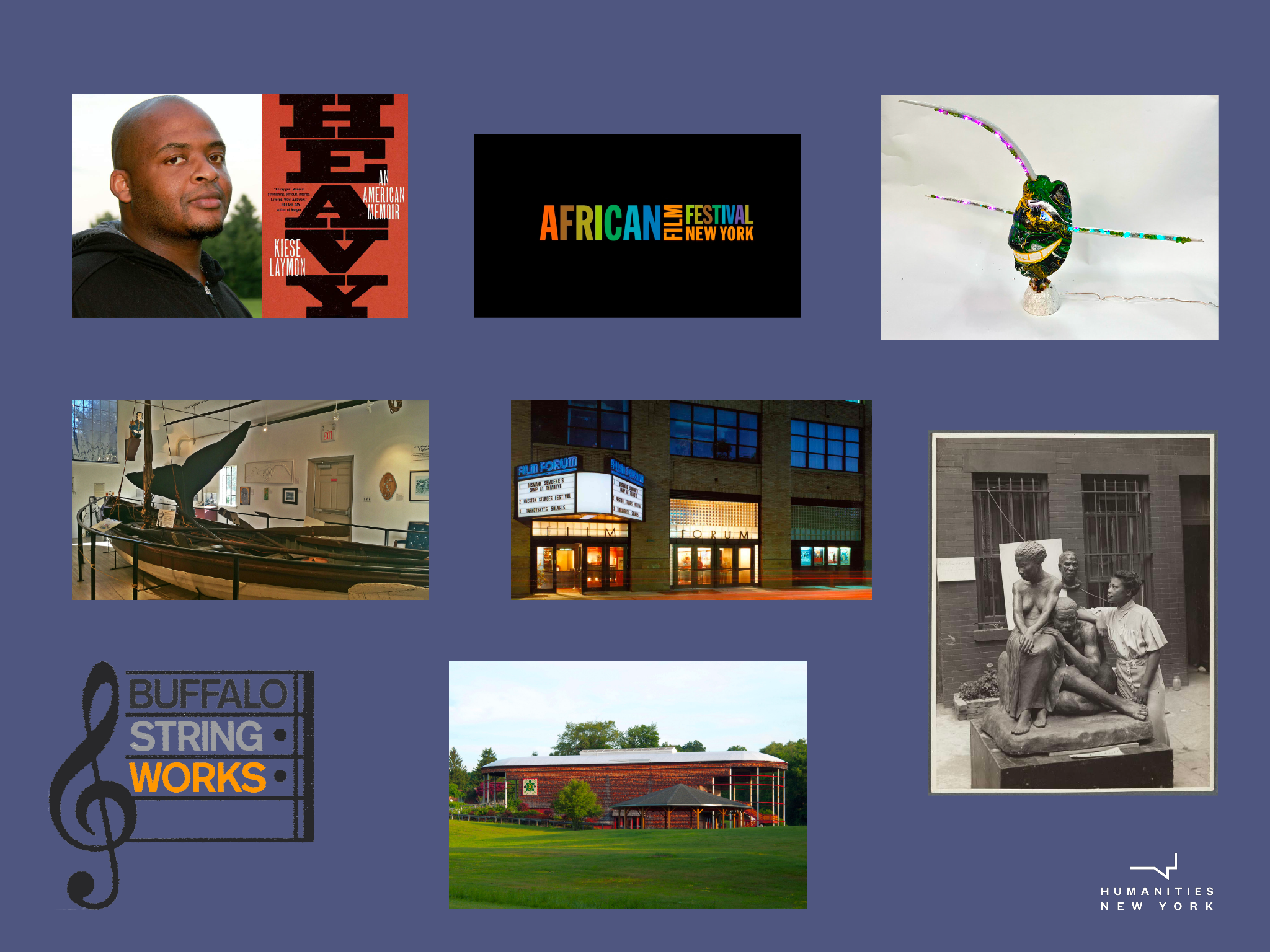We’ve gathered nineteen suggestions to commemorate the centennial of the Nineteenth Amendment. All are available in ebook format, and most have audiobook versions as well. Be sure to visit your public library’s website! Your library card may get you free access to digital versions of these books via platforms such as Libby and Hoopla. Don’t have a library card? New York Public Library has expanded its online offerings — any New York State resident may apply for a card via the SimplyE app.
If you want to commemorate the U.S. women’s suffrage centennial. . .
…here are some recently published books that shed new light on the long journey to suffrage, and the many women of diverse backgrounds who carried the movement forward.
She Came to Slay: The Life and Times of Harriet Tubman by Erica Armstrong Dunbar
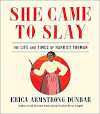
Harriet Tubman, best known as a conductor on the Underground Railroad, was a lifelong advocate for human rights, including women’s right to vote. With lively prose, Dunbar paints a fresh portrait of a woman whose fierce and relentless pursuit of justice and equality continues to inspire Americans today.
Free Thinker: Sex, Suffrage, and the Extraordinary Life of Helen Hamilton Gardener by Kimberly A. Hamlin
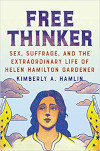
In the first biography of suffragist Helen Hamilton Gardener, Hamlin demonstrates how Gardener flouted social conventions and transgressed gender norms, but also held racist ideas that shaped her views of who should vote. The complexity of her story helps illuminate why the Nineteenth Amendment failed to secure voting rights for all women.
Why They Marched: Untold Stories of the Women Who Fought for the Right to Vote by Susan Ware
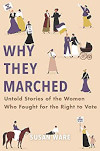
Using a collection of fascinating objects, from a suffrage cookbook to a pin in the form of a prison gate, Ware weaves together nineteen vignettes about the women’s suffrage movement.
The Woman’s Hour: The Great Fight to Win the Vote by Elaine Weiss
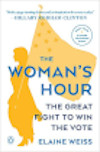
The ratification of the 19th Amendment by the states came down to Tennessee. Weiss documents suffragists’ final push for ratification during the summer of 1920.
And don’t miss these great suffrage histories by two HNY collaborators, Susan Goodier and Sally Roesch Wagner, and current board member Laura Free:
Suffrage Reconstructed: Gender, Race, and Voting Rights in the Civil War Era by Laura Free
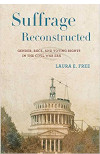
Who is a citizen, and does a citizen have voting rights? Historian Laura Free outlines the evolving debates over these questions before, during, and immediately after the Civil War. When the Fourteenth and Fifteenth Amendments established African Americans as citizens but only men as voters, a tentative alliance among equal rights advocates fractured. Leading suffragists used racist arguments to make their case, with implications for the women’s suffrage movement that reverberate to this day.
Women Will Vote: Winning Suffrage in New York State by Susan Goodier and Karen Pastorello
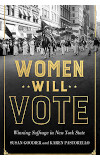
New York State passed legislation acknowledging women’s right to vote in 1917, almost three full years before the ratification of the Nineteenth Amendment. Goodier and Pastorello highlight the diverse actors—from Jewish immigrant women to rural women to African American women—who helped secure this crucial victory.
The Women’s Suffrage Movement by Sally Roesch Wagner
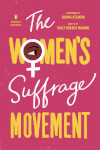
In this anthology, edited by Wagner with a foreword by Gloria Steinem, readers encounter the long struggle for suffrage in the words of suffragists themselves. Wagner pays careful attention to issues of gender, race, and class.
If you want to be inspired. . .
…these books highlight the courageous efforts of African American and Chicana women to secure civil, political, and economic rights in the mid-twentieth century.
¡Chicana Power!: Contested Histories of Feminism in the Chicano Movement by Maylei Blackwell
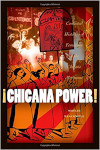
Drawing on rich oral histories, Blackwell details the evolution of Chicana feminism and leadership within the Chicano movement of the 1960s and 1970s.
Set the World on Fire: Black Nationalist Women and the Global Struggle for Freedom by Keisha Blain
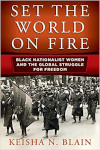
Historian Keisha Blain demonstrates that an less-studied group of black women were at the center of black nationalist politics throughout the Great Depression, World War II, and the Cold War. They forged alliances and deployed creative tactics to further their goals.
At the Dark End of the Street by Danielle L. McGuire
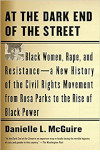
In this riveting book, McGuire recovers Rosa Parks’s legacy as an activist who defended black female rape victims. McGuire compellingly demonstrates that sexual assault was a core concern of civil rights activists, and that black women were leaders in crafting a strategic response to this facet of Jim Crow oppression.
Storming Caesar’s Palace by Annelise Orleck
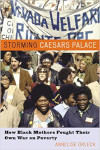
Orleck details the incredible story of a group of welfare mothers in Las Vegas, Nevada, who founded a successful anti-poverty organization, Operation Life. They also took on leadership in the National Welfare Rights Organization and demonstrated that low-income Americans are experts on the causes of and solutions to poverty.
If you’re wondering what intersectionality really means. . .
…legal scholar Kimberlé Crenshaw coined the term “intersectionality” in 1989 to describe the intersecting and compounding oppressions faced by women of color. What better time than women’s history month to learn more about black feminist thought? Any of these books might be a great place to start:
Eloquent Rage: A Black Feminist Discovers Her Superpower by Brittney Cooper
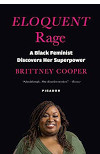
In this collection of essays, Cooper explores black womanhood, respectability politics, pop culture, and more with incisive wit. She argues that black women’s eloquent rage is a superpower in their ongoing struggles against oppression.
Bad Feminist by Roxane Gay
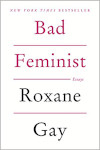
Gay unabashedly explores her relationship with pop culture and her journey to womanhood in this collection of essays that is both thought-provoking and funny.
Ain’t I a Woman: Black Women and Feminism by bell hooks
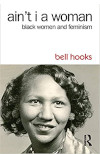
First published in 1981, in this classic feminist text activist and cultural critic bell hooks explores the impact of racism and sexism on black women from enslavement to the twentieth-century feminist movement.
How We Get Free: Black Feminism and the Combahee River Collective by Keeanga-Yamahtta Taylor
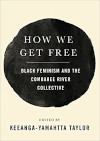
In 1974, the Combahee River Collective, a group of black feminist radicals, published the “Combahee River Collective Statement,” a manifesto that still speaks to today’s politics. In this collection of essays, activists reflect on the legacy of the Collective.
If you’re reflecting on identity. . .
…read further about how individuals and communities preserve their identities in the face of oppression. How do we honor our cultural roots in a globalized world? What does it mean to be “American”? These women have written about these questions through their personal and family stories of struggle and triumph.
The Best We Could Do: An Illustrated Memoir by Thi Bui
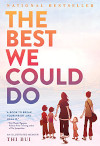
After the fall of South Vietnam in 1975, Thi Bui and her family escaped, ultimately relocating to the United States. Through her family’s immigrant experience, Bui reaches new understandings of family, home, and identity.
My Grandfather’s Knocking Sticks: Ojibwe Family Life and Labor on the Reservation, 1900-1940 by Brenda Child
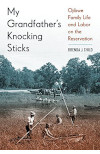
Using the story of her grandparents as an entrypoint, historian Brenda Child describes how Ojibwe communities preserved and adapted their cultural traditions while resisting federal intrusions in the early twentieth century.
Lakota Woman by Mary Crow Dog
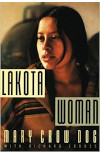
Mary Crow Dog (née Brave Beard) grew up on a reservation in South Dakota, attended a Catholic missionary school, and went on to be active in the American Indian Movement. In this memoir, Crow Dog depicts struggles both personal and political, leaving readers with an intimate portrait of the determination of Native Americans to survive and thrive in the twentieth-century U.S.
When I was Puerto Rican by Esmeralda Santiago
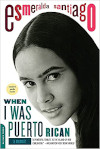
In this coming-of-age memoir, Santiago recounts her childhood in Puerto Rico, her transition to life in Brooklyn, and the intellectual journey that led her to the halls of Harvard and a career as a writer.
Still craving more?
Check out these popular reading lists from our Reading & Discussion Program: “Your Silence Will Not Protect You,” which features the works of “black, lesbian, mother, warrior, poet” Audre Lorde, and the “Votes for Women” collection, which includes more great reads on women’s struggle for the vote.
To learn more about women’s history and our forthcoming podcast “Amended,” sign up for our Newsletter.
Reading list compiled by Scarlett Rebman, Director of Grants, with help from fellow HNY staff members.
